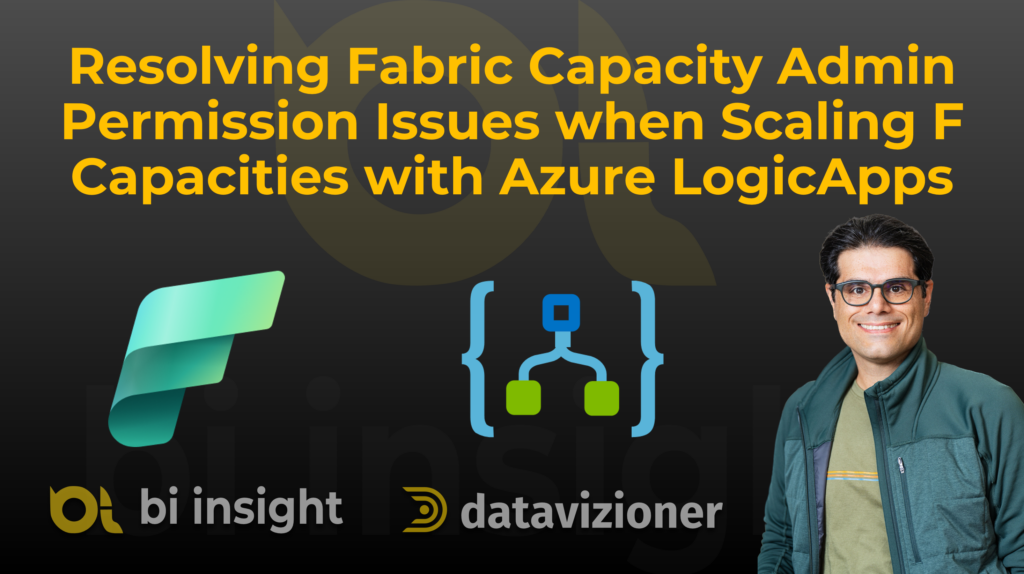Microsoft Fabric: Resolving Capacity Admin Permission Issues in Automate Capacity Scaling with Azure LogicApps

A while back, I published a blogpost explaining how to use Azure LogicApps to automate scaling Microsoft Fabric F capacities under the PAYG (Pay-As-You-Go) licensing option. Some of my followers reported an issue with their Capacity Admin settings when running the LogicApp solution. The issue was that their capacity admins disappeared after they had run … Continue reading Microsoft Fabric: Resolving Capacity Admin Permission Issues in Automate Capacity Scaling with Azure LogicApps
The post Microsoft Fabric: Resolving Capacity Admin Permission Issues in Automate Capacity Scaling with Azure LogicApps appeared first on BI Insight.
Published on:
Learn moreRelated posts
From Real-Time Analytics to AI: Your Azure Cosmos DB & DocumentDB Agenda for Microsoft Ignite 2025
Microsoft Ignite 2025 is your opportunity to explore how Azure Cosmos DB, Cosmos DB in Microsoft Fabric, and DocumentDB power the next generat...
Episode 414 – When the Cloud Falls: Understanding the AWS and Azure Outages of October 2025
Welcome to Episode 414 of the Microsoft Cloud IT Pro Podcast.This episode covers the major cloud service disruptions that impacted both AWS an...
Now Available: Sort Geospatial Query Results by ST_Distance in Azure Cosmos DB
Azure Cosmos DB’s geospatial capabilities just got even better! We’re excited to announce that you can now sort query results by distanc...
Query Advisor for Azure Cosmos DB: Actionable insights to improve performance and cost
Azure Cosmos DB for NoSQL now features Query Advisor, designed to help you write faster and more efficient queries. Whether you’re optimizing ...
Azure Developer CLI: Azure Container Apps Dev-to-Prod Deployment with Layered Infrastructure
This post walks through how to implement “build once, deploy everywhere” patterns using Azure Container Apps with the new azd publ...
Accelerate Your Growth: Azure Cosmos DB Partner Acceleration Program
Accelerate Your Growth: Azure Cosmos DB Partner Acceleration Program Unlock 360° Success with the Cosmos DB Engineering Team Are you ready to ...
Transforming Field Operations with AI, Azure Maps & Dynamics 365
Efficient field operations are the backbone of successful, data-driven organizations. Yet, many businesses continue to struggle with scattered...